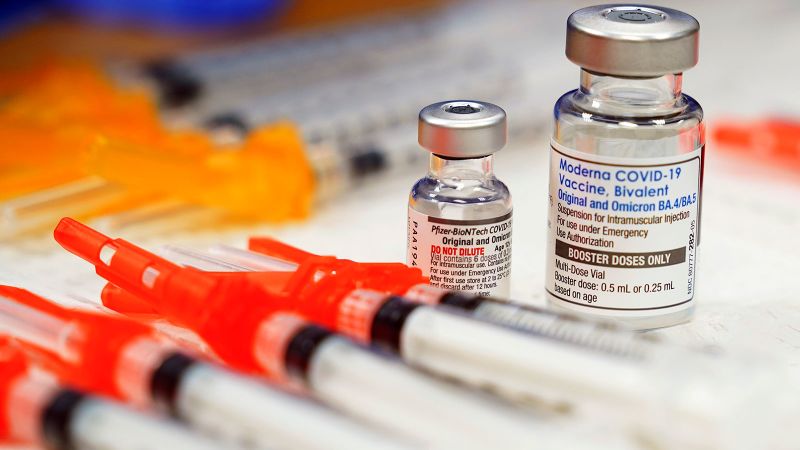As Covid-19 transmission ramps up in the United States, recent changes to federal vaccine guidance have left many Americans confused about the latest policies and concerned about access to shots this fall.
The US has had a summer surge in Covid-19 cases each year since the pandemic began. This year, however, experts say that the seasonal wave is starting later than anticipated and is relatively subdued. Surveillance data from WastewaterSCAN shows that median Covid-19 concentrations ticked up from June to July, with high levels in some parts of the country, but overall, it’s far below this time last year.
“My hypothesis was that the weak winter wave would set the stage for a bigger summer, because many people would not have recent immunity. So far, activity has been more sedate than I anticipated,” epidemiologist Caitlin Rivers wrote in her newsletter Sunday. “I remain open-minded about what August will bring. My best guess is continued increases until early September, but I am uncertain.”
Although it’s too early to know how big the current uptick will be or how long it will last, Dr. Jennifer Nuzzo, an epidemiologist and director of the Pandemic Center at the Brown University School of Public Health, says her key concern is whether Covid-19 vaccines will be available “in time to protect people, especially those at high risk, against severe illness.”
“My biggest worry at this point is the uncertainty about when updated Covid vaccines will become available and who will be able to get them,” Nuzzo said.
New survey data from KFF published Friday shows that most adults in the US don’t plan to get a Covid-19 vaccine this fall, but most who do plan to get the shot share concerns that the vaccine won’t be available to them and that their insurance won’t cover the cost.
In the past few months, US Department of Health and Human Services Secretary Robert F. Kennedy Jr. has said that the Covid-19 shot will no longer be recommended for healthy children and pregnant women, replaced a federal vaccine advisory panel and announced plans to examine the well-established federal childhood vaccine schedule.
For the latest survey, KFF polled a nationally representative sample of nearly 1,300 adults between July 8 and 14 – at least two weeks after each of these events.
About a quarter of US adults say Kennedy has made “major” changes to vaccine policy in the US, but another 40% “don’t know enough to say,” the KFF poll found.
Of those who do plan to get a Covid-19 vaccine this fall – more likely to be older adults and Democrats – about two-thirds say they are concerned that it might not be available to them. And more than 60% of insured adults who plan to get the shot are worried that their insurance won’t cover it.
About half of parents are not sure whether federal health agencies are currently recommending that healthy children receive a Covid-19 vaccine this fall, according to the new KFF data.
Kennedy announced that the US Centers for Disease Control and Prevention will not formally recommend the Covid-19 vaccine for healthy children, leaving decisions to be made between parents and their health care provider.
KFF found that personal doctors or health care providers remain the most trusted source for information about vaccines, with 8 in 10 adults saying they trust their own doctor at least “a fair amount.”
Trust in local health departments and the CDC has been eroding over the past two years, but most adults still say they trust these sources for vaccine information.
But far fewer – only 37% of adults – say they trust Kennedy at least “a fair amount” to provide information on vaccines, according to KFF. When asked about the impact of the changes to federal vaccine policy, more than a third of adults said they are making people less safe. Only 1 in 5 said the changes are making people safer.
Rivers says she recommends that people who want their annual Covid-19 get it sooner rather than later.
“The big drawback is, it is not updated yet; the new formulation will be released closer to autumn,” she said, but getting a shot now will offer protection against the unpredictable summer wave and get ahead of access concerns that may arise in the future.

